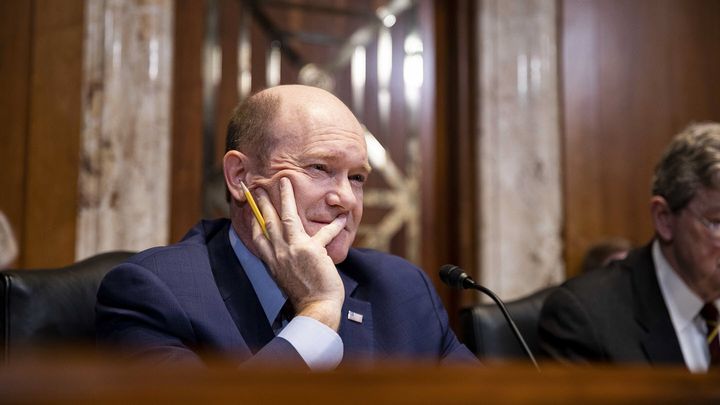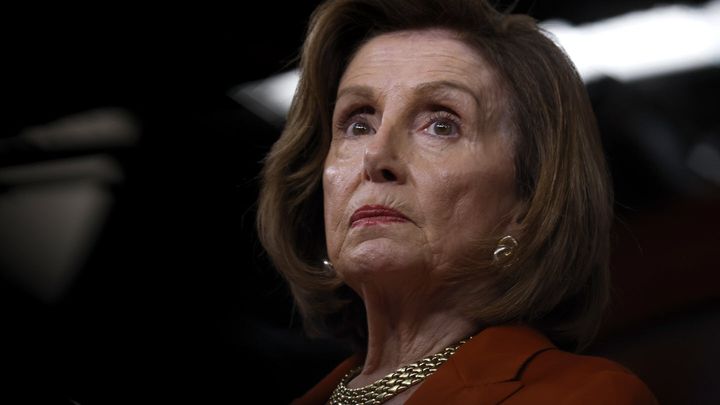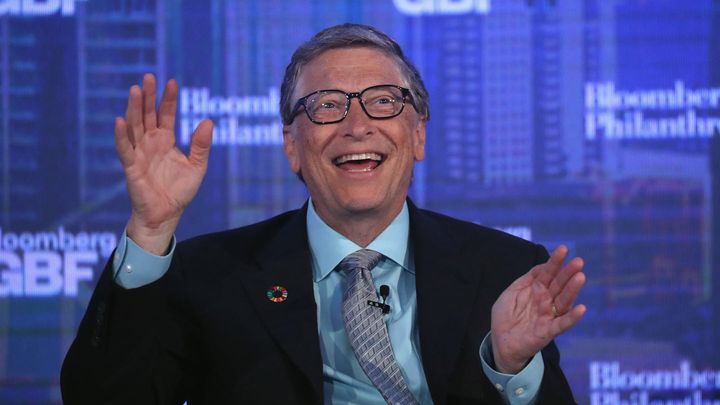For months, Democrats and Republicans have been at an impasse on the next coronavirus stimulus bill, with one of the big sticking points being a GOP plan to immunize companies against lawsuits. “No bill will pass the Senate without liability protection for everyone related to the coronavirus,” Senate Majority Leader Mitch McConnell (R-Ky.) said in July. Democratic leaders have called the idea a nonstarter and said they will oppose it.
But the Democrats are not without defectors. Corporate-friendly moderate Sen. Chris Coons (D-Del.), who holds Joe Biden’s former Senate seat, was among a small group of Democrats that in May called for corporate immunity, which The Hill described as “a crack in Democratic unity that gives Republicans and the White House some leverage.”
Coons said he wanted liability protections for businesses included in the next coronavirus bill, along with health and safety guidelines that businesses would be required to follow. “The simplest and most powerful solution to liability protection is to have a science-based, enforceable standard for the protection of employees and customers,” said Coons.
The “skinny” coronavirus package Senate Republicans put forward for a vote today would prohibit individuals from pursuing lawsuits “for personal injuries caused by, arising out of, or related to an act or omission by a health care provider in the course of arranging for or providing coronavirus related health care services.” The measure follows years of lobbying, going back to the early 2000s, from conservative business groups like the US Chamber of Commerce and the American Legislative Exchange Council (ALEC) and copies language adopted in New York that was drafted by health industry lobbyists.
No industry is currently more vulnerable to coronavirus-related lawsuits than nursing homes, which have been linked to more than 40% of all coronavirus deaths across the nation, according to data updated last month in The New York Times. In particular, private equity-owned facilities have seen a disproportionately high rate of infections and deaths during the pandemic.
“About 59 percent of private equity-affiliated nursing home residents contracted COVID-19—an infection rate 25 percent higher than the state average and 57 percent higher than at public nursing homes,” Americans for Financial Reform Education Fund, a non-partisan coalition of civic groups, wrote in a report based on an analysis of data released by New Jersey. “The resident COVID-19 fatality rate at private equity nursing homes was nearly 29 percent, more than 10 percent higher than the state average.”
Private equity firms typically implement aggressive cost-cutting measures when they take over facilities like nursing homes, often by slashing workforces and lowering wages and benefits. These changes can lead to employees being overworked and unable to provide an optimal level of care for patients, while wage and benefit cuts increase the potential for spread because workers may not have health insurance or they may be more inclined to work multiple jobs or rely on public transportation to get to work.
In New Jersey, one of the hardest-hit states, a nursing home chain called Atrium Health and Senior Living operates several facilities that have reported hundreds of infections and dozens of deaths. The chain is backed by MidCap Financial, a subsidiary of private equity company Apollo Global Management, which spends millions annually on lobbying and recently pushed for the expansion of a federal coronavirus relief program that could benefit its portfolio companies.
At one Atrium facility located in Park Ridge, New Jersey, a quarter of the residents have died since the pandemic began. The daughter of one resident who died at the Atrium facility told NorthJersey.com that her mother had developed a cough but the facility refused to test her. According to the latest data from the state, 98 residents and 53 staff members have had confirmed cases of COVID-19, resulting in 34 deaths at Atrium Post-Acute Care of Park Ridge. Other Atrium facilities have had higher infection totals.
According to the Center for Responsive Politics, Coons is the top Democratic recipient of campaign contributions from Apollo Global Management this election cycle. Executives and employees at Apollo Global Management have given Coons $79,100 since 2015, making the company his second largest donor, according to a tally by the Center for Responsive Politics. Coons’ donors include Apollo Globals’ three billionaire co-founders: Co-founder and Senior Managing Director Marc Rowan ($5,600); Chairman, CEO and Founder Leon Black ($2,800); and Co-founder Joshua Harris ($2,750).
Apollo Global Management paid Brownstein Hyatt Farber Schreck $600,000 in the second quarter of 2020 to lobby the federal government, including the Senate, on “Issues related to COVID-19,” as well as other matters. In addition, the American Investment Council, the trade association for a consortium of private equity companies that includes Apollo, spent over $1.1 million in the first half of this year lobbying the federal government on topics including the CARES Act and regulation affecting private equity firms, according to lobbying disclosures.
Jess Scarane, who is running a primary challenge against Coons, blasted the senator for breaking with Democrats by supporting corporate immunity and weakening a deterrent to corporate misbehavior.
“To frame corporate liability protections as helpful for workers is disingenuous and pushing a Republican talking point,” said Scarane. “Coons breaking with Democratic leadership and joining Mitch McConnell to push for liability protections is putting the lives of workers at risk.”
Coons, who was labeled “the GOP’s favorite Democrat” by Politico in 2018, has sided with conservatives on many major bills and issues in recent years, as documented by David Dayen at The American Prospect:
Coons and Carper both voted for the only major bipartisan legislation passed in the Trump era, a bank deregulation bill that has triggered a wave of consolidation within the industry. Coons has been a surprisingly reliable vote for many of Trump’s slew of right-wing judicial nominees, including a handful who refused to explicitly support the ruling in Brown v. Board of Education. His stance has drawn controversial criticism from the liberal judicial organization Demand Justice.
The Democratic primary in Delaware will take place on Tuesday, September 15. Coons’s office did not respond to a request for comment.
Read more from Sludge:
Gottheimer Backs Bailout Plan Pushed by His Private Equity Donors
Neal’s CARES Act Bailed Out Hospitals But Not Hospital Workers
Dems Cash in From Private Equity Firms They Defended at House Hearing
Hedge Fund Billionaires Power New Democratic Super PAC
House Dems Try to Sneak Through Weak Financial Regulator Bill



